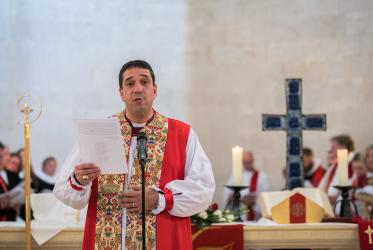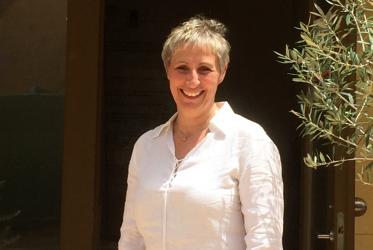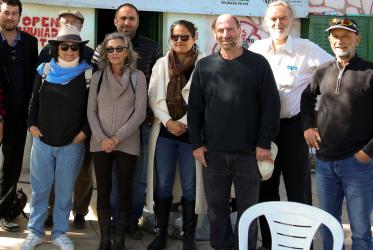Displaying 1 - 20 of 34
Dr Saïd Ailabouni: God is on the side of rejected, oppressed, occupied
12 September 2019
Rabbis walk through Hebron in solidarity
07 February 2019
WCC condemns intended demolition in Bedouin village
13 July 2018
Many ready to observe World Week of Peace in Palestine and Israel
15 September 2017
WCC gravely concerned over Israel’s travel ban
09 March 2017
Winners of WCC photo contest announced
09 May 2016
Tveit highlights unjust water resources for Palestinians
10 February 2016










